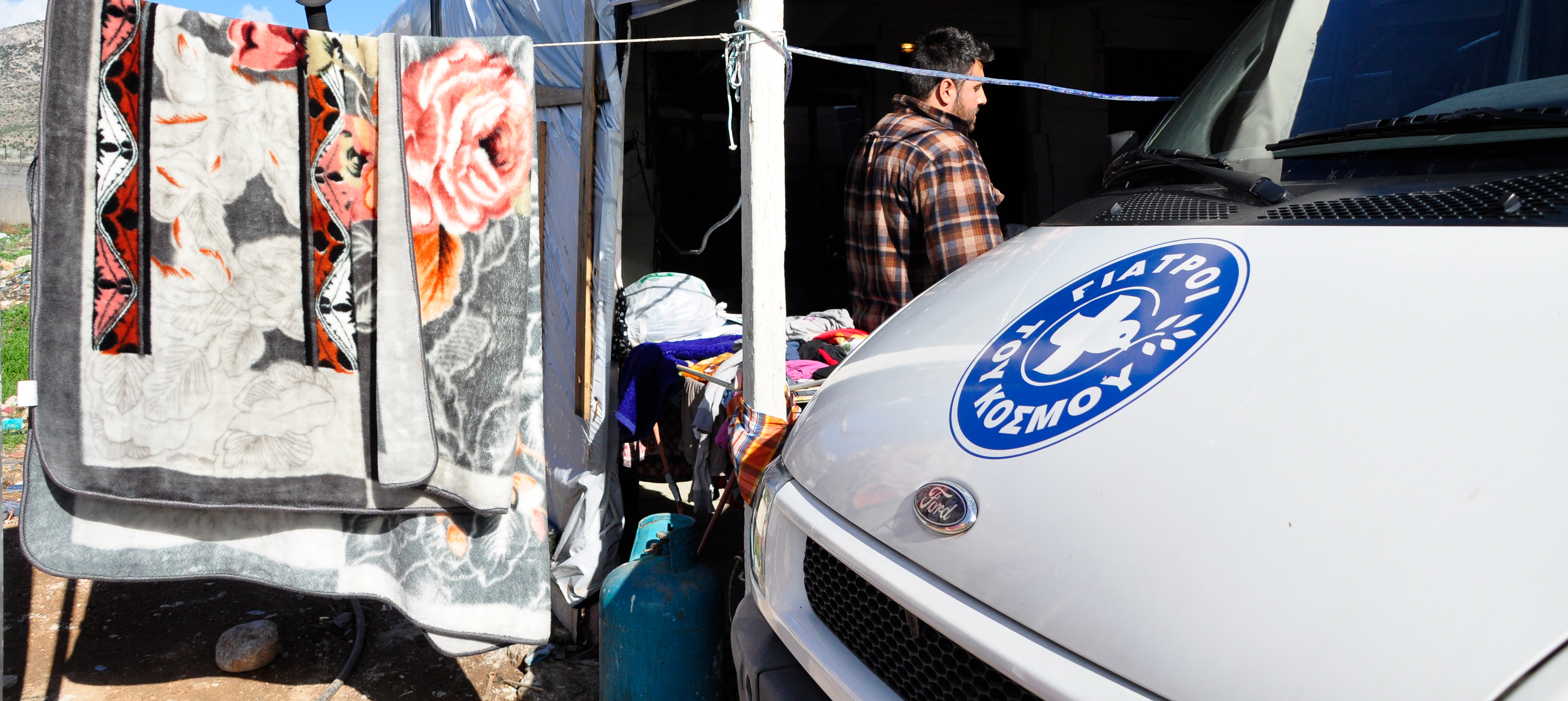
Educational activities in Roma communities
The Rom-boost project aims at the social and economic empowerment of Roma populations in Greece through intensive education and skills development.
Most Roma populations across the country remain excluded from the wider community, some without legal documents, living in inappropriate conditions, facing severe or extreme poverty, food insecurity, limited access to public services, low levels of education, unemployment and under-representation in the public sphere. These problems reinforce a vicious circle of degradation and exclusion, which includes and sustains introversion, social inequalities and ultimately delinquency as a negative coping mechanism.
Rom-boost project
The activities of the Rom-boost project include intensive and targeted training of existing mediators and the wider community using the snowball approach. The training includes a common core and three different axes, Health, Protection and Advocacy of Rights and Communication and Culture. These axes will be accompanied by corresponding practical applications integrating the theoretical knowledge acquired during the training and translating it into practice in three modules:
- Participation in MdM-Greece vaccination campaigns, strengthening access to primary health care
- Organisation of open talks with the participation of public figures (politicians, local government representatives, etc.)
- Preparation for the job market and contact with potential employers
Aim of the project
The aim of the Rom-boost project is to contribute to the social and economic empowerment of Roma by enhancing access to a coherent package of training and good practices.
The Rom-boost project adopts a bottom up participatory approach. It uses the tool of education/training in order to transfer necessary knowledge to the Roma communities. At the same time it acts as a key ‘common ground’, as a communication corridor between the implementing organisation and the target population. The snowball approach achieves the transmission of the results of the training to wider sections of the community, while the organisation of open events, the provision of medical services and the interface with the public sphere, together with the horizontal advocacy for protection and equality of the beneficiaries, mark the positive change achieved through the intervention.
“Snowball” Training
The participants of the seminars, organise their own seminars tailored to the interests of their community. MdM-Greece accompany the training activities, activating and engaging in dialogue with the community. In this way, the knowledge gained is directly transmitted to a wider part of the community and common objectives, concerns, etc. are better defined for subsequent individual actions.
Impact of the project
At the level of the beneficiary communities, the project adopts a theory of positive change. Education – the outcome with the greatest sustainability over time – is chosen as the vehicle for this change. At service level, MdM-Greece is implementing targeted strategies to increase uptake of child and infant vaccines and improve the level of health literacy in communities. The project aspires to be a model for action for the future, maximising multiplier benefits, and has the potential for scalable intervention. In line with MdM-Greece’s long-standing strategy, the project provides a base of empirical evidence that forms the foundation of humanitarian advocacy, i.e. the defence of fundamental human rights. Finally, at policy level, the project aims to provide a stepping stone for the adoption of good practices and necessary reforms.
MdM-Greece has been focusing on the health and social inclusion of Roma populations since 1997. They have already implemented 9 related projects in areas of Attica and Thessaloniki, in more than 10 different camps in total.
Project Manager
Elli Xenou
